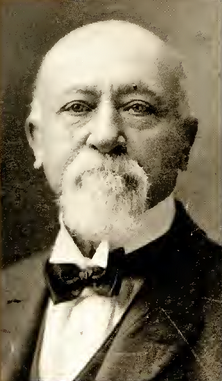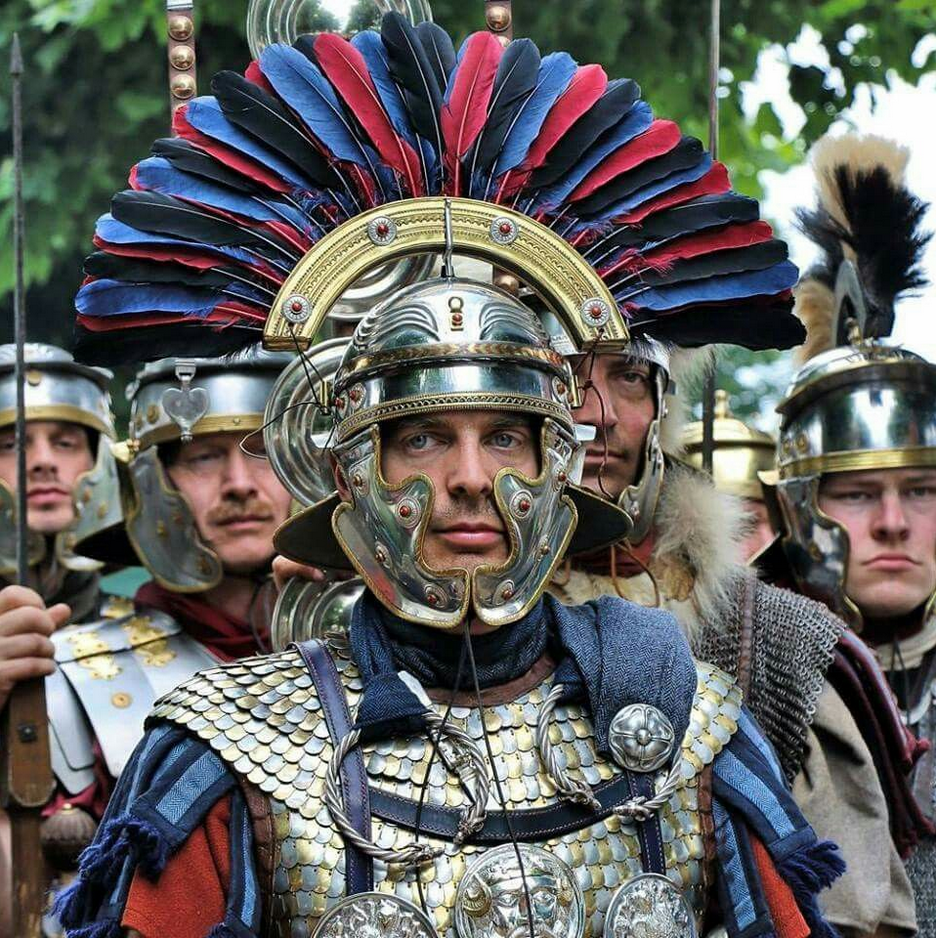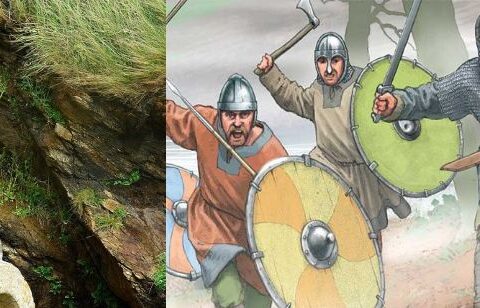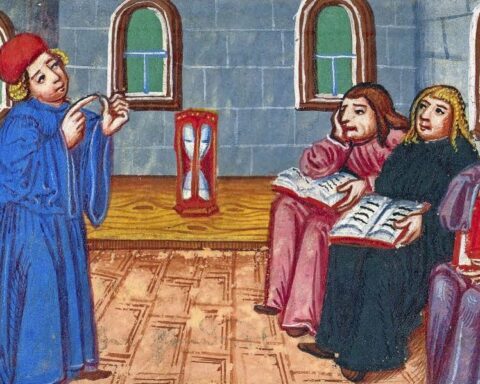Editor’s note: The following sermon by North Carolina pastor Rev. Thomas E. Skinner was published in 1865.
The Centurion was a Roman military officer in command of a hundred men. Six of these officers and their men constituted a cohort — six hundred men, while sixty of these made complete the invincible Roman legion of [thirty-]six thousand men.
Of the various grades of officers commanding in the Roman legion, the Centurion, though not of the highest honor, was of the greatest use.
Large bodies of troops are necessarily disciplined and commanded in broken numbers, and since the day of Moses and the Egyptians, the number selected as most advantageous has been that which is now commanded by our Captain.
We do not over-estimate the value and use of the office of Captain when we declare, that the discipline in camp, the demeanour and soldierly bearing on march, the invincibility in attack, the success in pursuit and the order of retreat — all depend chiefly upon the qualifications of that office.
Officer our men with good Captains, and the blunders of an incompetent, it may be a drunken General, will be reproved oftentimes, if not checked and retrieved, by the brave and efficient Captain and his men.
Indeed if a man desire the office of a Captain, he desireth a good work.
In addressing officers of this grade, in our army, we desire to call their attention to the honorable, because useful, position of the occupants of the Captaincy in the Roman Army, as described by the writers of the New Testament Scriptures. And afterwards, to show wherein the efficiency of this officer, in our army may become invaluable to his country, and promotive of the glory of God.
And first, observe the character of
THE CENTURION AT CAESAREA.
It is worthy of honorable notice that Cornelius, the first Gentile convert to Christianity, held the rank of Captain in the Roman Army. He was a centurion of the band called the Italian, a man in active military service, surrounded by all the influences which are acknowledged, in every army, to be powerful, in drawing away the mind from the contemplation of religious subjects, and thereby preventing the performance of sacred duties.
Yet, Cornelius “was a devout man, and one that feared God with all his house.”
According to the light which he had, he was a religious man. He honored the true and the living God, and His Son whom He sent, as soon as Christ was revealed unto him. He taught his family the same reverence to the true God. His habit was to pray daily at stated periods. “He prayed to God always.” He was a benevolent man “which gave much alms to the people.”
That he was sincere in all this, we have the testimony of the Angel, who appearing unto him in a vision, said, “Cornelius, thy prayers and thine alms are come up for a memorial before God.” Another evidence of the devout and sincere heart of this heathen Captain, is the good influence of his life upon all around him. He sent to bear the message of the Angel unto Peter, two of his household servants, “who all feared God,” “and a devout soldier of them that waited on him continually.” And not only among his own family, but among all the nation of the Jews, he was reputed as “a just man and one that feared God, and of good report.” But his life was not merely powerful, in its example all around him, but above him. Even to the spirit world, his prayers and his alms were recorded before God, in the book of remembrance, in which is written God’s favor to them who fear Him. Here is the character of a great and good man, great because good, and yet he was a Captain in the Roman Army.
THE CENTURION AT CAPERNAUM.
The character of this man is testified to of Christ as very remarkable. He was a Gentile, a Roman officer, who had command over the troops stationed at Capernaum, as a garrison for that subjugated Jewish town. Though a soldier, he was an eminently godly man though not a follower of Christ, as he knew nothing of Christianity. As a heathen and a Roman soldier, we might expect that his prejudices were great both against the religion of the Jews and the people over whom he ruled. But we find that the Elders of the Jews reported him as worthy of a visit from Christ, inasmuch as he had expressed great regard for the people with whom, in the providence of God, his lot was cast and had actually, out of his own private funds, built them a Synagogue.
This is all that is related of him up to the time of his interview with Christ. A servant to whom he had great attachment was sick of the palsy, in behalf of whom he went to Christ and asked him to heal him. “Beseeching him,” he said, “Lord my servant lieth at home sick of the palsy, grievously tormented.” The good master struck with the humble posture of this, a Gentile soldier of rank, returned his grace with unexpected favor. The promise is “ask and ye shall receive.” But before he could ask the favor, Jesus saith unto him, “I will come and heal him.” But observe the increased expression of humility, on the part of the Captain. “I am not worthy that thou shouldest come under my roof.” Not that his roof was dishonorable for he was a great man and rich. It was not the roof, but the man that was too humble for Christ to come near. O, how Christ hastens to such. He did not say that his house was unworthy, nor his servant, but, “I am not worthy.” So should all men lie down in their own unworthiness in approaching Christ. Look at this man’s remarkable faith that Christ could cure his servant, for at that time Jesus was not believed on by the people as He was afterwards. Nor had He performed many miracles as yet. Still the Centurion had discovered His power and grace. Not only so, but his faith overleaped space and every opposing obstacle. He believed that Christ was God, that He whose word created all things could speak a cure to his servant miles away. That He who fills all places at all times, needed no contact with his servant in order to heal him; “but speak the word, Lord, and my servant shall be healed.” The Centurion believed that He who said, “let there be light and there was light,” could say to the sick of the palsy, “take up they bed and walk,” or “thy sins be forgiven thee,” and that Christ had as much authority and power to do this as the Centurion had to say to this soldier, “go, and he goeth, or to that, come, and he cometh.” It was the great humility and faith of this Captain which, as it were, filled Christ with amazement and brought from His lips the high commendation, “I have not found so great faith, no, not in Israel.”
Thus we have another instance of the office of Captain, in Christ’s time, being filled by one worthy of the favor and grace of the Lord our Righteousness. Let us look again at
THE CENTURION AT THE CROSS.
Jesus the Son of God had proclaimed the Gospel of peace, the glad tidings of Salvation. He had done the will of Him who sent Him, and was now offered up as a sacrifice for our sins. The cry had gone forth, IT IS FINISHED.
He had bowed His head and cried with a loud voice, and given up the Ghost. And now behold the awful scene at the cross. Nature groaned; the earth did quake; and the rocks rent, and the graves were opened, and many bodies of the Saints which slept, arose and came out of their graves, and the veil of the Temple was rent in twain from the top to the bottom. Now when the Centurion and they that were with him watching Jesus, saw the earthquake, and those things that were done, they feared greatly, saying truly this was the Son of God.
Like most soldiers, this Centurion and his men were ungodly, but the grace of our Lord Jesus Christ is all powerful, and even these at the cross are convicted by what they witness. At one time during the crucifixion, the soldiers also mocked Him, coming to Him and offering Him vinegar and saying, if thou be the King of the Jews save thyself. But the scenes which were soon to follow were calculated to change their feelings, if not their hearts. Deep conviction settled down upon them of the holiness of the Sufferer, who by the very circumstances attending Him, must be none other than the Son of God. By their terror, and especially by this confession, is their conviction expressed. There are instances similar, among our soldiers, of conviction produced by scenes in battle and by bitter experiences in camp and the hospital. Many are impressed with the belief that God shielded them in battle, and to their last day, whether they repent or not, his conviction will remain. But what terrible means of conviction were presented at the cross. The Centurion, who from the judgment hall to the hill of the crucifixion, had commanded the whole scene and had partaken of the spirit of the mocking and enraged Jews, “when he saw what was done, glorified God, saying certainly this was a righteous man. Truly this was the Son of God.” And surely this was no mean confession, even at the eleventh hour and under the cross. It was all that Peter said, and for which he was blessed. It was much more than the dismayed Disciples dare say, or even than the women that attended Him from Galilee, or even than the beloved Disciple John dare assert if near the Lord. May we not hope then that the Centurion at the cross, with many of his soldiers, were among the number of those who were converted on the day of Pentecost and subsequently? The Savior’s prayer, “Father forgive them, for they know not what they do,” was doubtless answered.
But Christ was buried and made His grave with the rich, which was guarded by the soldiers. This brings to our view
THE CENTURION AT THE SEPULCHRE.
A strange place indeed for a soldier. For what guard other than death could be needed? It was best for us however, and for His holy religion, that Christ’s resurrection should have been witnessed by those who were set as a guard to prevent the Disciples from stealing away his body, (as they said,) that they might be witnesses for the truth. That this was the same Centurion and soldiers who conducted Christ to the cross and participated in the awful scenes of that day, we cannot determine, though Pilate’s words, “Ye have a watch,” might indicate it. Let it suffice, that the all-important officer, the Centurion with his men, were selected for this awful duty. There they march in measured time up to the stillness of the sepulchre of the great dead. Joseph of Arimathea and Nicodemus, honorable counsellors, who had conducted the private funeral, had closed the door of the sepulchre with a great stone. The foot-prints of women might have been seen around the sepulchre. These are the only marks of friendly attention to the Friend of sinners. But the soldier’s duties must be performed. The great seal of the Sanhedrim is placed upon the stone, and now they have only to watch.
As the first day of the week began to dawn, came the two Marys to see the sepulchre. In the distance are heard the dreadful thunders, and the earth shakes under their feet. Reminded of the awful scenes at the cross, they hasten to the grave, and behold the Angel from Heaven who came and rolled back the stone from the door and sat upon it; his countenance was like lightning, and his raiment white as snow, and for fear of Him the keepers did shake and become as dead men.
The great event upon which our religion is founded had occurred. Said the Angel to the women: He is not here for He is risen as He said. Come see the place where the Lord lay.
Here are two important witnesses to the resurrection of Christ. Not the twelve Disciples as we might expect; not the faithful women who followed Him from Galilee to the cross and to the sepulchre; but the Angel from Heaven and the guard who were set to watch the sepulchre. Some of the watch went into the city and told the chief Priests all that they had seen. They told them of the earthquake, the descent of the Angel, the rolling of the stone away, and of Jesus coming out of the grave alive. This important testimony of enemies in favor of the fact of Christ’s resurrection, was ordained to be given by soldiers. Some of the watch went into the city, we are told. Where were the others? Perhaps the scenes of the resurrection, if not of the cross, broke their hard hearts and brought them to Christ.
Many things also, might be mentioned interesting to us, and honorable to the Centurion and his soldiers, in connection with the life of Paul, the great Apostle to the Gentiles. But we hasten to consider the relation of this office to the times, and the living scenes through which, as a nation, God has called us to pass. We have already stated that the office of Captain is the most useful and important in our army. This is so from the nature of the office, irrespective of the character of him who may fill it. How much greater its use and importance, when the characteristics of a true soldier are found to exist in its occupant, we cannot too earnestly impress upon our readers.
The first characteristic of a true Captain is patriotism. Patriotism is the noblest passion that animates a man in the character of a citizen. It is the love of one’s country, and that which impels him to protect it in peace, and to defend it in war.
But do we mean by our country, its geography, its rivers, and mountains, its lakes, and fields, and cities? Or rather do we not mean its inhabitants? We may have strong attachments to local scenes, associated as they are with our loved ones on earth and in eternity. These fields and cities, houses, and rivers, appear dear to us now, but drive away their inhabitants or consume them in war, and let another and an inimical race occupy our fair land, and we shall see nothing lovely in it.
It is of man we speak when we say our country, man as a fellow citizen, in distinction from mankind generally. It is the gratification that we derive from seeing our countrymen prosperous, educated and free, and the determination to protect them in the possession and enjoyment of such rights, that constitutes true patriotism.
The man who possesses this passion, together with ordinary, natural and physical talents, is competent for the office of Captain. With such noble principles and high aims, as have been designated to the Captain, his purpose will be, as his duty requires, to study to promote the usefulness of his men, in the furtherance of the great cause which they have espoused. If he possesses these traits, he will instill them into his men and brother officers. His associates will not be almost exclusively, among the officers of his Regiment, while he should be looking after the comfort, discipline, and every soldierly attainment possible to his men. If a man enters the office of Captain, with a desire to rise from it merely as a stepping stone to one of higher honor and emolument, he has betrayed a defect in character, which proves him to be disqualified for the position he now holds. We would not say that a desire for promotion is dishonorable. He who by faithfulness and efficiency in this office, shows his qualifications for a higher, is properly chosen when a vacancy occurs, or the public good requires it. A true Captain will not despise his office or its duties. Only those who are looking over their men’s heads at the glittering ensigns of superior positions in the army, and who are essentially selfish, will despise their office, or neglect their men. Let none boast of patriotism then, who will in any particular, neglect their men or treat them with unnecessary severity, or with harshness and cruelty.
But the highest qualification to the office of Captain is piety.
We have seen that patriotism is indispensable in him, who would command his fellow soldiers, and that patriotism consists in a high regard for the welfare of our fellow citizens. But a question arises, can a man possess a high regard for the interests of his fellow citizens, who does not respect the laws and majesty of his Maker and Judge? Christ said, “Thou shalt love the Lord thy God with all thy heart, and with all thy soul, and with all thy mind. This is the first and great commandment. And the second is like unto it, Thou shalt love thy neighbor as thyself. On these two commandments hang all the law and the Prophets.” That is, the whole duty of man is to love God supremely, and his neighbor as himself.
The second commandment Christ said was like unto the first; so like it, that our love to our fellow man, is a necessary consequence of our love to God. “And if a man say, I love God, and hateth his brother, he is a liar; for he that loveth not his brother, whom he hath seen, how can he love God whom he hath not seen.” “This commandment,” says John, “have we from Him,” “That he who loveth God, love his brother also,” that is, our love to our fellow man is a consequence of our love to God, which is as much as to say, that the highest patriotism is consistent only with piety.
If this be true, then how erroneous are the ideas of some, who say that the army is no place for a professor of Christianity, that the camp is destructive to piety, and that religion is incompatible with the duties of the soldier. Let such men hold down their heads and blush, before the example of the Centurion of the Roman Army, as described in the New Testament. If what such men say be true, then the duties of the soldier must be sinful. But are we to conclude thus? All war is murder, except it be in self defense. The duties which this inhuman invasion of our soil imposes upon us as soldiers, are in accordance with every high principle, and noble impulse of our nature; and these duties, be assured, can best be performed in the fear of God and with His never-failing blessing, upon the cause of the just, who put their trust in Him.
We have thus spoken of that intelligent and useful class of soldiers, who fill the office of Captain in our army, because of their influence and position to do good. Remember the ancient dignity, and the present honor of your office, and let your lives correspond in dignity. Be guarded in your manners; “I thought we all regarded ourselves as gentlemen,” said the great Washington once when dining with some of his officers, one of whom uttered an oath. Don’t forget how Christ honored some of the praying and devout Captains of the Roman Army. Think of the hundred men whose health, comfort and efficiency are entrusted to your care; of their valuable lives and precious souls, with which you have more to do at present than any other one on earth. Think then daily of your responsibility to your country and to your God; of the incalculable importance and value of the stake, which is risked in this revolution; your national independence and peace; your irretrievable vassalage, ruin, annihilation.
Think of the high expectations of loved ones at home; of gray haired sires; patriotic mothers, wives and sisters, and of their safety and honor. Think of the blood of brave comrades, crying out from the earth for vengeance, against a cruel and relentless foe; of the intentions of the barbarous enemy if successful in his plans. O, think of generations yet unborn, to be blessed with the fruits of your victory, or condemned to drag out a miserable existence in chains of the Northman’s slavery. Think of all these and answer, will you not like the devout Centurion, pray to that God who rules the destinies of nations; to give you His grace, to make you a patriotic soldier, a pious Captain in the great army of independence and freedom.
But we cannot close this interview without some reference to your personal interest in the great salvation.
Before our minds’ eye, you all stand with an appearance of equality. Officially you are so, “but know, that the Lord hath set apart, him that is godly for himself,” “but the way of the ungodly shall perish.” “Like the chaff which the wind driveth away, the ungodly shall not stand in the judgment.” There is a difference, and the least observing must notice it. The true Christian in the army, like the devout Centurion of old, will shine as light in darkness. We know that there are such in our army. From the highest in rank, down to the humble private, they stand and fight and pray and sing. “I will both lay me down in peace and sleep, for thou, Lord only makest me dwell in safety.” The wicked call these fatalists. Not discerning things spiritual, the carnal mind mistakes the heavenly faith for senseless fatality. It is to the pious Captain that we would first address a word of encouragement and comfort.
When first you left home and loved ones and the church, how sad the thought that pressed itself upon you, that “I shall see no more, perhaps, the pleasures which I have enjoyed within those sacred walls; the Sabbath school and prayer meeting too, I shall long for.” Perhaps a regret passed through your mind too, for not having done more for Christ when opportunities so favorable were presented. Such thoughts are natural.
But what has your experience in the camp proved, my dear brother? Instead of leaving the field for Christian effort as, you supposed, when separating from home and the brethren, have you not found room for usefulness in the army, which has far exceeded your expectation? If active at home for Christ, has not a way been opened among your comrades for even greater activity, because of greater need? When you saw your neighbors and their sons giving a loose rein to vice and wickedness, when joined hand in hand, they would seem to hope to escape punishment, when the lukewarm and false professor sat at the same card table, indulged in the same vain and vicious conversation, Walking in the counsel of the ungodly, standing in the way of sinners, and sitting in the seat of the scornful, did not home and friends and church, all rise up before you saying, “if sinners entice thee, consent thou not?” Yes, the same faithful shepherd watches over you. That same Jesus who was precious to your soul when first you believed, has kept His faithful promise, never to leave you, nor forsake you. Have you responded to these invitations to Christian effort, or has the ungodliness of the camp, like a flood, come in, upon your soul and made you ashamed of Jesus? What return have you made for such amazing mercy and goodness? Have you read His word, hiding it in your heart, that you might keep His commandments? Have you, “praying always” like the devout Centurion, been constant in the habit of secret prayer for your own soul, your friends at home, your fellow-soldiers, your country? Tell me, if one of your men was sick or wounded or sorrowful, did you visit him with Christian care and affection, did you make your tent a pavilion for the Lord, a Bethel for your soul and your companions? Did you invite them into prayer meeting, or pray with them in their own tents? However situated, have you realized the precious consciousness that you are none the less Christ’s and Christ is none the less yours? If such has been your life and experience in grace, then the above questions are answered joyfully. You have not neglected your bible, nor secret communion with your Maker. But if you have neglected these things, if the unbounded wickedness of men has closed your lips, and self-distrust has deterred you from these duties, think for a moment of the pious men in your company, who for the lack of your example and Christian care, are left as it were, with no man to care for their souls. Think again of the invaluable aid you might render your Chaplain, if he is a proper man, with a mind to work for Christ. And if he is not, unfortunately, then your example with the blessing of the Lord, might reprove his negligence, and stimulate him to this labor of love. Remember the Sabbath day in the camp, to keep it holy. When works of necessity are over, then prepare your sacrifices for the Lord your God. A broken heart and a contrite spirit, He will not despise. Instead of visiting the village nearby, attract your men to their own faithful Chaplain and thus preserve the habit of punctual attendance upon the religious services of your regiment.
The pious Captain has upon him no small part of the work of maintaining a civilizing and healthful religious character among the soldiers in our army. When our patriot regiments are disbanded to return home and enjoy the blessings of national independence and peace, the evil tendencies which may be returned with them, will in a great degree, be attributed to the neglect of their moral and religious duties in the army. So that the faithful officer who performs his duties to his men, not only blesses them and his country now, but at the same time nurtures the peace and good order of the community when the war is over, and the rigour of law is relaxed, and when the passions and lusts of men, stimulated by vile associations, will seek to run in their natural channels, overflowing the breastworks of society. The effect of this would be to shock communities with bloody crimes, to fill our jails and penitentiaries with criminals, and to blunt the moral sensibilities, and harden the hearts of the people, who would become frequent spectators of public executions on the gallows.
Finalizing your great responsibility, will you not resolve, as the patriot soldier, the devout Centurion, the pious Captain, “whatever you do, do all to the glory of God?”
To the ungodly, unthankful, profane and wicked Captain, we have only a word to say; we would not use such unseemly epithets, if truth did not require it. You have always been such in character, but worse since you became a soldier. Whether the restraints of home-life being lost to you, or the provocations of a new kind of business, or the unsuspected power of example, or the idea sometimes indulged even by intelligent men, that in order to be a brave soldier one must cast off every restraint, forget the gentle and sacred influences of home, of female society, so pure, attractive and ennobling, of innocent childhood, so bewitching, of the house and people of God, whose favor is better than life; and that in order to forget all these, swearing, drinking and gambling, with all beastly conduct, contrary to the nature and dignity of man, must be not only allowable, but it would appear indispensable; whether one or all of these be the cause, the fact we know, that there is a class of men in office in our army, who are amazingly and shockingly wicked and profane. Will you be dissuaded from such a course? Is there anything manly in it? You have by your position as a soldier before society, the confidence and sympathy of the brave and the good. Why sink such a reputation by beastly habit? All men are mortal, but you have voluntarily, and for a good purpose, nobly sought the post of increased exposure to death. And do you intimidate the “king of terrors” by behaving like one of his victims in the pit? Why demean yourself thus before the dreadful scythe-man, on the battlefield, while, were you at home on your dying couch, you would weep as mother’s tears or father’s sighs bespoke your doom; you would gladly clasp the faithful minister of Christ by the hand and thank him for his prayers; you would then worship God with the same tongue, which now blasphemes His holy name. Will you explain this senseless conduct? The excitement of the battlefield, the perplexities of the camp, the tendencies to evil in the army, though potent will neither excuse you nor explain it. A Christian soldier under these very influences will not succumb to their power. Supported by the everlasting arms of Him “who bears the earth’s huge pillars up and spreads the heavens abroad,” the Christian enticed, assaulted, can say, “none of these things move me.”
“But,” say you, “I am not a Christian,” and you turn away as though you had answered the question as to your course of life and that henceforth you are justified in your sins. Does the fact that you are not a Christian take away your accountability? Are sinners not responsible, but Christians only? The very fact that you are not a Christian proves your guilt as well as accountability. “There is therefore now no condemnation to them that are in Christ Jesus,” implying condemnation to all not in Christ. “If any man love not the Lord Jesus Christ, let him be accursed.” You do not love Him if you do not keep His commandments. “If you love me keep my commandments.” “He that believeth on the Son hath everlasting life; and he that believeth not the Son shall not see life; but the wrath of God abideth on him.”
What then, though you are a patriotic soldier, a faithful officer, a victorious leader in the great revolution which is to achieve your country’s independence? What though your name be inscribed on the page of history, which shall tell of exploits in arms, of sufferings endured, of patience in toil, under excessive heat and cold, thirst and hunger, and clothed in rags, if, when you awake to the realities of the eternal world, you shall find that the one thing needful is forgot? What shall it profit you if you gain that independence so much craved; nay, if you gain the whole world and loose your own soul? For what shall a man give in exchange for his soul?
For the brave and patriotic Captain, who stands so willing and ready to give his life for his country, but, who seems not to love his own soul, who gives no thought, no meditation to these things, we feel a profound sympathy, for him we write these words and may God our Father bless them to His salvation and to the glory of His name.










This is really good. It’s something I needed to hear and take to heart.
I completely agree